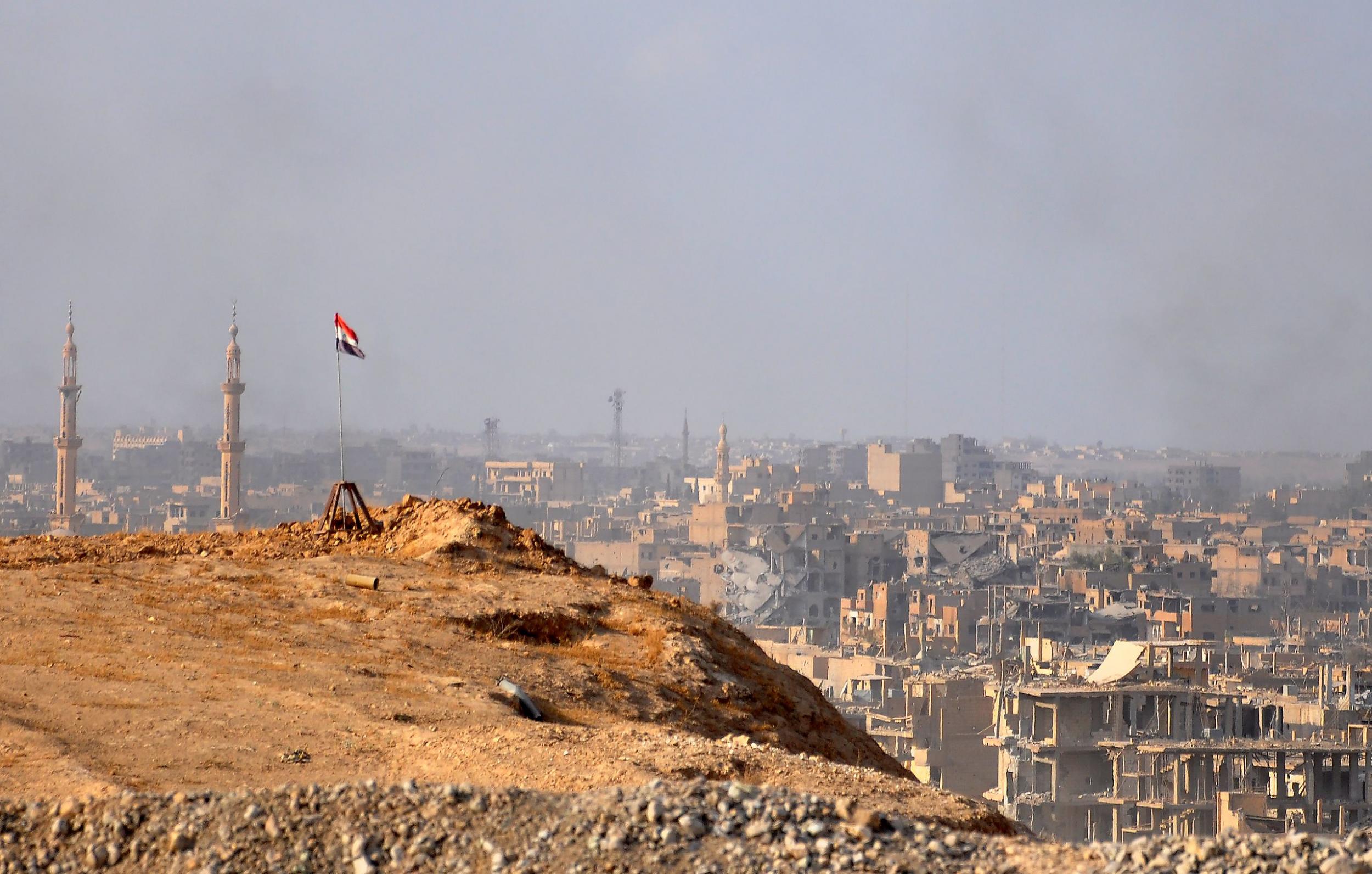The fight against Isis is far from over – but they have lost face
Isis has lost virtually all of its formal military structures, its ability to raise taxes and sell oil, the prestige of it leadership and its image as being unstoppable from Morocco to Pakistan and beyond

So-called Islamic State was always, in fact, more properly thought of as two states. The first was an approximation to a nation state, the caliphate as it was described by its rulers, a seventh-century style despotism armed with modern weaponry and resourced by substantial oil reserves. This is the iteration that has now been all but destroyed.
The other was the Islamic State of the mind, the allegiance that random individuals anywhere in the world could self-declare, in the very modern model of the terror “franchise”. That is the one to which the West now needs to turn its attention.
The military defeat of the caliphate looked distant even a short time ago. The freedom fighters in Syria and Iraq and their allies in the West, Russia and Iran made up a kaleidoscope of shifting alliances and battlegrounds, both on the ground and diplomatic conference chambers. Factions could, and did, switch sides. Rivalries between Isis and al-Qaeda also complicated matters. Still, eventually, two arms of a pincer movement coalesced in a squeeze on the caliphate, and have now deprived it of its territorial base. This means that Isis has lost face, virtually all of its formal military structures, its ability to raise taxes and sell oil, the prestige of it leadership and its image as being unstoppable from Morocco to Pakistan and beyond.
Isis looked to too many impressionable eyes like a “winner”. It does not look so impressive now.
There are now three immediate tasks. The first is to make all efforts to ensure that Isis does not become some sort of guerrilla force constantly wearing down its opponents on the ground and, more importantly, using the innocent populations of those benighted lands as weapons of terror. It is more than capable of doing so; the fighting has not ended.
Second, the West has to account for and contain those Isis fighters who will be attempting to return home. According to the security services, hundreds will be heading for Britain. They will be coming back as surreptitiously as they can manage; some will certainly be intent on carrying on their murderous missions in British towns and cities. Returning soldiers even in a civilised army do not find it easy to adjust. As we have witnessed all too often, all they need to do to take lives is a van, a few knives or some crudely manufactured improvised explosive devices. The security services know who they are, or at least must have intelligence on many of them, and should be given any resources they need to track them and bring them to justice. The security and safety of its citizens is the highest priority of any government, and there has hardly been a more potent threat to British civilian life since the end of the Second World War than this returning mini-army of British jihadis.
Third, Syria and Iraq need to be rebuilt politically and physically. Peace has been delivered to large swathes of Iraq and Syria, but all too often it has been the peace of the graveyard. Historic towns, once bustling and prosperous, have been reduced to rubble. The use of chemical weaponry by the Syrian government is a war crime, and the role their Russian allies played in supporting them is, to say the least, open to question. There were better and more effective ways of prosecuting the war than to gas civilians. Yet the region and the world are better off without the caliphate. The victory, if it can be termed thus, has not been a classically pyrrhic one.
So the physical caliphate that ruled over millions of unwilling Muslims across a third of both Iraq and Syria has all but disappeared. Liberation has arrived for many, though not always a joyous one. It took only a few years. The fight against the Islamic State of mind, of its nature, will take much longer to win because it is being fought in the ether, on the internet, a battle of ideas more than over territory, a struggle to liberate Islam itself from the fraudulent, evil, self-serving claims of its perverters.
Like the effort to drive Isis from their old strongholds in Iraq and Syria, however, it is a war that cannot be avoided. The defeat of the caliphate does at least offer some evidence that Isis, stubborn as it is, is far from invincible.

Join our commenting forum
Join thought-provoking conversations, follow other Independent readers and see their replies